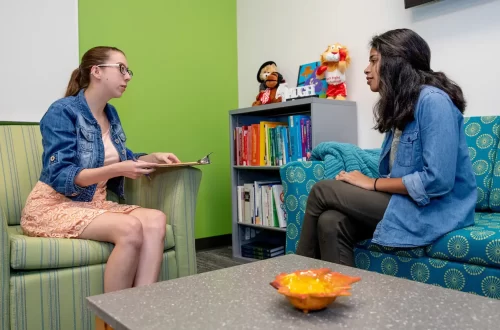It’s Time for One of Those Seminars
There comes a time in your career when you start attending grant application seminars. Often, these are put on by the university, and are filled with bright-eyed, bushy-tailed researchers just bursting with ideas they want to get funded.
Picture this … the room fills up and a hush descends as the university’s high-flying grant winning professor takes the floor. There is a PowerPoint filled with advice, and dutifully the audience copy down the points into their notebooks, determined to crack the secret formula of grant success.
Once home, they incorporate the advice into grant applications, spending hours, days and weeks at their desks polishing their work. Evenings, weekends and holidays fill with hours spent writing, drafting and redrafting. Instructions to grant applicants will be scrutinised again and again. Meetings are scheduled with co-applicants and university-appointed grant writing assistants. Families and friends are neglected, leisure time and self-care is abandoned, summer drifts into autumn.
Finally, it’s time to submit; the grant application is anxiously uploaded. Then, the months of waiting begin … the trepidation is terrible.
The Likelihood of Funding Success
Unfortunately, as anyone involved in this game knows, the likelihood of success is low, particularly for early career researchers or those who have not won a grant before.
For example in Australia in 2016, the Australian Research Council (ARC) Discovery Projects, and National Health and Medical Research Council grants had a success rate around 18% (Australian Research Council 2017b), and ARC Linkage Projects around 30% (Australian Research Council 2017a). ‘A huge amount of effort is being dedicated to writing grants with very little chance of success’, says Dr Euan Ritchie, a senior lecturer in ecology at Deakin University.
The Importance of Winning Grants
Yet despite these odds, regular successful grants are crucial for an academic career to advance. Grants fund research, research leads to publications, publications result in job security and promotion, not to mention actually being able to communicate the results of research to colleagues and the community.
In fact, many academic job applications will depend on a strong track record of successful grants awarded by prestigious funding bodies. With government funding of universities increasingly being cut (Conifer 2016), universities are progressively more reliant on research grants to help fill funding gaps.
It can be particularly difficult for researchers working in what is commonly known as ‘blue sky research’—research that is not directly beneficial to human health, patents or other money-making outcomes.
Dr Tiffany Kosch is a postdoctoral research fellow at the One Health Research Group at James Cook University. Her have research area is investigating the genetics of immunity of Corroboree frogs to a fungal disease, chytridiomycosis, which has led to the precipitous decline of many frog species and contributed to the extinction of a number of others worldwide. Her research fits into this category.
‘It gets more challenging [to obtain funding] each year’, Dr Kosch relates, seeing this as a major problem with the current research model funding. Dr Ritchie agrees, ‘That’s a real problem when you consider the state of the environment and the need to better manage it, there’s just not enough money at the moment to really help that important research’.
Increasing Your Chances of Funding Success
Dr Kosch suggests applying for as many grants as possible, and that doing collaborative research may increase grant success. However, even with these recommendations included, grant success for early career researchers is often poor. Understandably, granting bodies wish to bestow their limited funds on those with a proven record.
Recognised early career researcher funding schemes are few and far between, and competition is fierce. Australia graduated over 8,000 PhDs in in 2015 and this number is increasing (Department of Education and Training 2016).
With only 200 Discovery Early Career Research Awards available in 2015, it’s a bleak outlook for many doctoral graduates who wish to begin a career in research and obtain that crucial first grant. ‘When you look at the amount of money that is awarded for those schemes, versus the number of applications, it’s very piecemeal. The success rate … is very low’, states Dr Ritchie.
Better Solutions—More Money
An obvious answer would be simply to increase research funding. However, this has not been supported in recent years in Australia (Brett 2015) or in other developed countries where public funding as a percentage of GDP has also declined (Rohn, Curry, and Steele 2015). In the current climate, despite lip service, increased government funding for research seems unlikely.
Redistribution of Funding
‘If [early career researchers] aren’t encouraged early and they don’t get a chance they probably will walk away from science’, says Dr Ritchie, who suggests that a redistribution of funding towards early career researchers could encourage more people to stay in their chosen field.
‘If you are a really well established professor then you shouldn’t really need massive amounts of funding every single year because you’re set up already … whereas to sustain and encourage young researchers … more money could be going to the other end of the spectrum towards the younger scientists’, Dr Ritchie suggests, although he acknowledges this scheme would be controversial. ‘But I think it’s probably fair,’ he continues, ‘if you look at success rates of ARC Discovery grants against career stage it’s staggering … you basically have to be an Associate Professor or a Professor to have any real chance … It’s a big problem.’
Assessing Productivity
Another suggestion might be to assess how productive a researcher is relative to the amount of grant money that they have been awarded, which would level the playing field for researchers producing valuable work on shoe string budgets.
Building the Careers of Early Career Researchers
The flipside of the top-heavy grant success is that experienced professors approaching retirement may find it difficult to wind back their involvement, as their research group depends on their continual participation to ensure grant success. ‘Some professors build empires, in many cases with good intentions … but they need to sustain them … it shouldn’t really be that way … If the system was working properly, younger researchers should be having their careers built and hence facilitating their transitions to becoming leaders too, but that’s not happening nearly enough’, says Dr Ritchie.
An Expression of Interest System
Increasing efficiency of the grant application process would certainly be helpful. With such low grant success, some of our best and brightest minds are toiling away for many days and weeks, often in their own time, with little hope of grant success.
Surely their talents and time could be much better served doing the research rather than endlessly writing grant applications?
One of the mechanisms for this might be an expression of interest procedure, as occurs with the National Science Foundation in the USA. They review a brief proposal, and give feedback as to whether the grant proposal has enough merit to proceed to a full grant application submission. This procedure saves researchers preparing a full grant proposal, which can sometimes run into hundreds of pages requiring countless hours of preparation.
‘I think this is really valuable for younger researchers who may be unsure whether they’ve got a chance or not and therefore whether they should invest their energy or not’, comments Dr Ritchie. ‘I think it would be great to see the ARC do this.’
Increased Transparency and Feedback
Another suggestion to improve the efficiency of grant applications would be to provide transparent and detailed feedback to failed grant applicants. ‘Particularly in your early career stages, it’s really hard to understand how you can improve your grant writing and success because you haven’t been given enough direct, detailed feedback. There’s a lack of transparency [as to how decisions are made] too. If someone cannot explain why you didn’t get the grant that’s probably a little bit unfair and questionable practice, especially when you consider the time being invested to write those grants’, states Dr Ritchie.
Change the Timing
‘Another challenge is the timing of grants’, continues Dr Ritchie, mentioning the difficulty of juggling end of year commitments of Christmas, family holidays and teaching preparation with a March grant deadline. ‘You have this thing hanging over your head … It’s very family unfriendly. So having an open scheme is much better. I think this would increase access to people who have families or other important commitments in their lives.’
The ARC Linkage grants have just moved to an open scheme, where grant applications are assessed as there are received, and funding outcomes are announced within six months of the submission. This is a positive step.
Employ Professional Grant Writers and Editors
Can professional grant writers and editors help improve grant application success?
‘I think they can certainly make a difference to the communication aspect of the grant because they are one step removed and can see what the message is, therefore more people should understand it,’ recommends Dr Ritchie. Dr Kosch agrees, seeing successful grant applicants as those who can ‘break down [the] science into a narrative that is understandable to a general audience’.
Crowd Funding
Another suggested source of income that has recently come to the fore as a popular way of funding computer games or medical bills is crowd funding research, major artistic projects or even individuals. When pursuing this type of funding, communication is key. And professional writers and communicators can be particularly important when reaching broad audiences.
In our blog post, ‘Crowd Funding Your Research’, we will explore what may be the future of funding … where communication and persuasion are key skills. Could you successfully crowd fund your next project?





